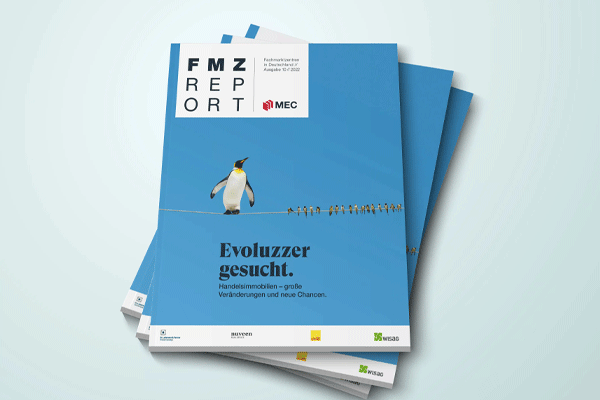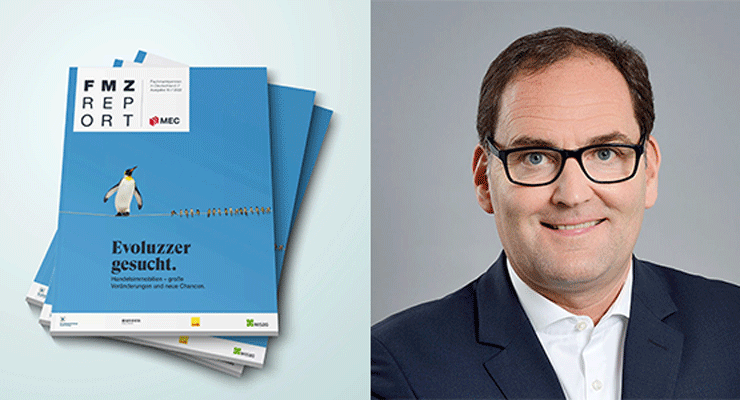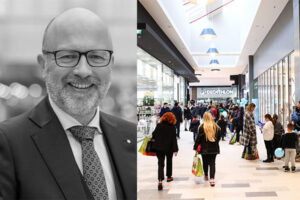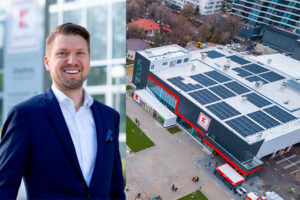It is an anniversary for a successful publication in the real estate industry: In what is now its tenth year, the retail real estate specialist MEC, together with its partners Nuveen, Savills, Dr. Lademann & Partner and Wisag publishes the FMZ-Report 2022. “Evolutionaries wanted. Retail real estate – major changes and new opportunities” – is the title of the current issue that deals with the many major changes in this asset class of retail real estate and the resulting opportunities. And the editors agree: It is a time for evolutionaries.

“In the history of the FMZ Report, there has never been a year in which the dynamics of change were as strong and the transformation processes in the economy and society as far-reaching as they are today,” says Christian Schröder, COO of the publisher MEC, describing the editorial focus of the current edition, which comprises more than 100 pages. In the report, the authors address the current defining issues for the retail real estate sector.
Sustainable turnaround

Climate protection, changing consumer behavior, digitalization – retail parks are facing a wide range of new challenges. All of them have one thing in common: they cost a lot of money. What is part of the investment strategy for a retail location and what factors influence investment decisions? Maria Grubmüller, Senior Research Associate at Nuveen, gets to the bottom of these questions in the current FMZ Report. Change is part of life. However, there are events that give such processes a powerful boost.
“The pandemic has increased the focus on safe and more sustainable investments and noticeably accelerated many megatrends such as digitalization and sustainability. Today, the valuation of a retail property is no longer determined solely by its location and expected returns, but increasingly also by its sustainability and the implementation of ESG criteria,” the expert sums up. In the 1980s, so-called “ethical investments” were often still associated with performance losses. Today numerous studies prove that an equally good, if not even better performance can be obtained by considering ESG criteria – often with smaller risks. Only those who focus on ESG in good times will be able to keep investors and consumers on their side in the long term and continue to generate robust returns,” Grubmüller is certain. Today, she says, driving by sight with a real estate portfolio is a guarantee against losing touch with sustainable changes in our society and the market.
The industry still lags behind regarding ESG
“The substantial framework conditions of retail park investments – such as cash flow stability, location quality due to restrictive building laws, index leases, lower cyclical dependency – are so attractive that the market will remain liquid,” explains Jörg Krechky, Head of Retail Investment Germany at Savills Germany, in the current FMZ Report. However, the expert makes clear that at the same time: ” The retail real estate sector and thus also the retail park segment is still lagging behind when it comes to ESG. Be it due to the structural problems in retail, the short recovery phase from the pandemic or because other sectors feel more transparency pressure.”

Although awareness for ESG has increased due to regulations, investors’ capital flows in the retail segment have not yet been redirected to sustainable properties on a large scale, says Krechky. Nor are there currently any extensive, energy-related renovations of existing properties in order to achieve ESG conformity, says the expert. This is surprising, given the high proportion of institutional investors in this sector. However, Savills expects this to change significantly in 2023.
Equal footing is necessary

For Christian Schröder, the COO of MEC, this change requires not only smart, holistic strategies, but above all a mental repositioning to find answers to the major challenges of sustainability. “In light of these major tasks, it is time to close ranks between the acting disciplines in the real estate industry,” says Schröder. It is more necessary than ever, he said, for investors, asset, property, and facility managers to see themselves as a team and act as equals. No one can master the complexity of the current challenges alone, especially when it comes to sustainability.
From the MEC manager’s point of view, the current problems on the way to climate-protecting retail real estate are obvious: “We are currently trying to react to new requirements with old patterns, and turn the biggest challenge for our industry, climate neutrality, into a business model with a quick return on investment. Green should pay off. The truth is: climate protection has a price tag. It pays, but it’s not a yield turbo – at least not yet.” Anyone who calculates today that the markdowns for a “gray” property are less than the investment in a “green” building and therefore opts for gray is walking into a trap, he said. “Not acting means having to bear immense costs for the consequences of climate change, and these costs are guaranteed to rise inexorably. Sooner or later, they will get on top of us and cause our business models to fundamentally stumble – for sure,” says Christian Schröder.
The time has come
Uwe Seidel is convinced that sustainable strategies can be lucrative business models. The Managing Partner at Dr. Lademann & Partner, sees great business potential in the sustainable development of retail locations: “It is important not to lose any time, to start now and to implement solutions that work economically apart from ESG, subsidies, and temporary federal as well as state support programs. These include, for example, the use of photovoltaic systems on large roofs or parking areas of retail properties, as well as modern contractual solutions for the sale of the electricity generated via so-called purchase power agreements.

“As a result, these and other intelligent solutions create revenue models that make a significant contribution to climate protection and the sustainability of retail properties.” In his article in the FMZ Report 2022, Uwe Seidel, together with Andreas Kleefisch of Baumeister Rechtsanwälte, sharpened this perspective: “At last, the entire life cycle of the property is being considered more closely. As we consider the value of a property from this perspective, the question of resource-conserving construction and operation becomes very important. “
“It is not just the currently soaring energy prices that show that building and operating in a way that conserves resources can bring in hard cash. I do not mean doubling or tripling the insulation of a property here. I am talking about a holistic view of energy consumption and the use of sun, wind, and rain,” says Kleefisch. Not everything that is architecturally beautiful or modern needs to be implemented today, he says, because the result can be high energy use for cooling or heating. “Today’s facades, if they are planned in a climate-friendly way, are constructed completely differently. They cool in the summer or retain heat in the winter, and in some cases even produce electricity themselves,” Kleefisch describes this turn of the times.
Holistic refurbishments
However, for Jörg Wege, Head of Strategic Development at MEC, it is extremely important to think more broadly about the challenges of sustainability and see them as part of a fitness program for often aging retail properties. The complexity of such refurbishments, from planning to implementation, is high and continues to increase with changing environments. However, with an eye toward achieving overall climate goals, this path offers retail locations the momentum to implement a significant part of the necessary energy measures. Wege is certain that “The owners’ questions regarding the financial feasibility of the necessary investments, as they are currently already emerging, will be answered by the real estate value as the effect of the EU taxonomy increases”. With the current interest rate development, however, an additional burden is currently building up. It can be assumed that viable solutions will be found after the current “period of calm or uncertainty”, as in previous crises. However, one must realistically assume that not every retail property and not every associated business model will survive these changes.
“Structured and targeted action in dealing with existing properties offers good chances of success. It is advisable to have a property-related medium to long-term program of measures based on solid knowledge of the property and its location, with a concrete target in mind. Ideally, it should be possible to know the degree of target achievement for all aspects at all times. With such a procedure, the EU taxonomy also loses its horror because it also follows the idea of continuous improvement with regard to the ESG criteria,” explains Jörg Wege the tasks that are now necessary.
Better transparency, decreasing costs

Valid data is of crucial importance on this path to the future of retail locations, knows Joaquin Jimenez Zabala, Head of Business Development Retail Real Estate at WISAG Facility Service. “Data can be a universal key when it comes to keeping an eye on costs, optimizing processes, and ultimately managing retail locations more sustainably – and thus reducing expenses,” says Zabala. But the data situation is still often inadequate: “Currently, the consumption data for electricity, heat, or even water is collected in an incomplete manner,” says the expert. There is already the technically proven option of measuring consumption data with the help of computers, and of allocating energy consumption specifically to a rental unit or to certain locations at a retail site with smart metering systems. “Automated billing creates comprehensive transparency, and ultimately it also reduces process costs,” explains Zabala.
In view of the immense challenges facing retail real estate, the current FMZ Report clearly shows that it is time to stand up, show courage, take action, and evolve with the new challenges. It is a time for “Viva la Evoluzion!”

The Retail Park Report 2022 “Evoluzzer wanted. Retail real estate – major changes and new opportunities” can be viewed and downloaded here: FMZ-report. (disclaimer: only available in German).






